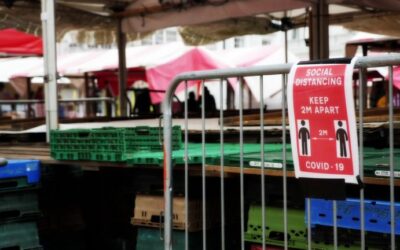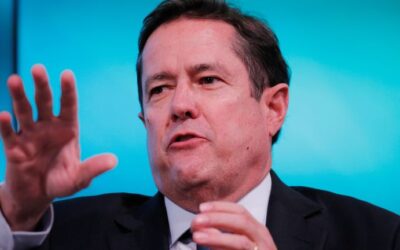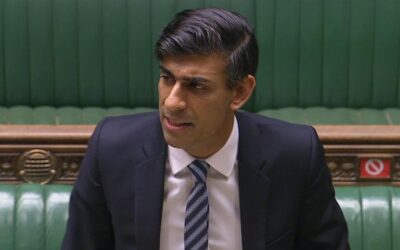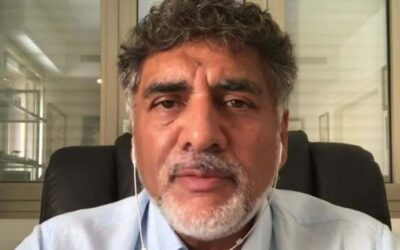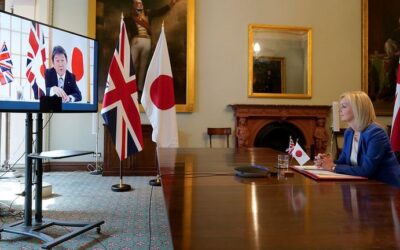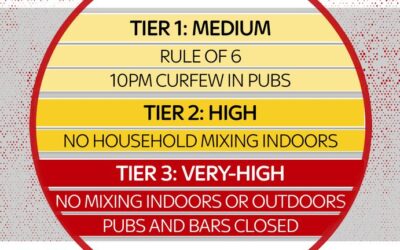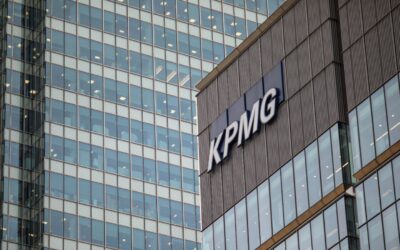A report from the National Audit Office (NAO), looking into how well the Treasury and HM Revenue & Customs managed risks involved in implementing the furlough scheme – and its sister scheme to support the self-employed – makes for depressing reading.
Even at a time when the public is becoming inured to the vast sums being sprayed around and borrowed by the government, in its response to the COVID-19 pandemic, the figures have the capacity to shock.
The NAO, the public spending watchdog, says that up to £3.9bn has either been paid out in error or fraudulently claimed under the furlough scheme.
Even in a best-case scenario, an estimated £2bn has been lost.
Please use Chrome browser for a more accessible video player
Some furloughed workers are still working
Most worrying of all is its conclusion is that there has been “organised criminal activity, including the stealing of taxpayer identities and coercion of taxpayers to make fraudulent claims”.
Advertisement
Unscrupulous employers making claims for employees that they then insisted continue to work for them is one obvious source of fraud.
But what is particularly depressing is that HMRC officials told the NAO that they were “almost certain” that more than half of fraudulent claims had come from organised crime gangs pretending to be legitimate businesses.
More from Business
Nor does the NAO hold out much hope that much of this money is going to be clawed back on behalf of taxpayers.
As Meg Hillier, chair of the public accounts committee of MPs, put it: “HMRC has paid out billions of pounds to fraudsters. Most of this is likely to be gone for good.”
The scale of the failure to stop fraud is also spelled out with the NAO’s revelation that, to date, HMRC has blocked only £10m of claims under the furlough scheme. Money appears to have been handed out with gay abandon.
Yet HMRC and the Treasury also have a case for their defence.
Gareth Davies, the head of the NAO, pointed out that establishing the furlough scheme and the related Self-Employed Income Support Scheme (SEISS) had been a huge challenge.
He told Sky News: “HMRC set up this scheme from scratch within a four week period right at the peak of the pandemic with everyone working remotely.
“This was a very significant achievement and it resulted more than 12 million people receiving income support through the lockdown period and payments were made very quickly – and that is an important part of the context.”
Mr Davies said there was only a limited amount of time for checks before claims from employers for the furlough scheme were approved and paid and that had meant that there were risks.
Please use Chrome browser for a more accessible video player
Chancellor sets out three extra support measures
He added: “Everyone knew from the outset that that was a high level of risk that a tax and payment system like this would normally run.”
Mr Davies said it was still “early days” in terms of establishing levels of fraud and error and said it was possible that the final figure could turn out to be “quite different”.
He said HMRC was “well practised” in dealing with allegations of fraudulent behaviour from whistle-blowers and said he was confident that the agency was dealing with tip-offs.
A hotline set up by HMRC for people to report fraudulent claims under the schemes has received more than 10,000 calls and Mr Davies said he was satisfied these calls were being followed up – although it is also worth noting that, during the early days of the furlough scheme, the telephone hotline was not available because home-working restrictions meant staff could not take calls in a secure environment.
The concern must be, though, that HMRC has sufficient resources to tackle fraud.
The NAO report reveals that HMRC is redeploying 500 full-time staff to work on ‘post-payment’ compliance work – raising the prospect that some fraudsters will subsequently have money clawed back from them. This is expected to get back an additional £275m based on current investigations into 10,000 of the highest risk claims.
Please use Chrome browser for a more accessible video player
Dodds: ‘We’ve got to get ahead of the crisis’
Even in this approach, the NAO notes, there are risks. It observes redeploying staff will cost up to £200m in lost tax revenues because these workers will be taken away from doing other tax compliance work. It says it would take too long – 18 months – to recruit people and train them appropriately.
On a brighter note, the NAO appears to have been much more successful at stopping fraud under the SEISS.
While payments made in error or due to fraud under the furlough scheme are currently estimated at between £2-£3.9bn, they are currently put at just £130-£270m under the SEISS. That partly reflects the smaller scale of the SEISS – but also the fact that, unlike with the furlough scheme, applicants could not put in a claim via an agent but had to do so under their own name.
HMRC reported that it also “monitored activity and prevented some large-scale attempts to attack the system”, for example, blocking around 87,000 claims, worth £242m, over the course of a single weekend in May due to suspicious activity.
It would be very easy to get depressed about this report.
However, it is worth recalling the speed with which the furlough scheme and the SEISS were set up, which would have been impressive even by the standards of the private sector.
Aviation and retail worst hit in jobs crisis
By the standards of the public sector, where decisions are often made, signed off and then implemented at a glacial pace, it was nothing short of astounding.
It is also worth recalling the intense pressure under which Rishi Sunak, the chancellor, came under to support people whose jobs and livelihoods were threatened by the lockdown. Most people were generally satisfied with the Treasury’s response and the furlough scheme also won praise, at the time, when compared with alternatives elsewhere.
Moreover, even as the scheme was being set up, it was acknowledged that some money would be paid out in fraud or error.
Some may judge that that leakage of money, however shocking, is the lesser of two evils when the alternative would have been literally millions of people running out of cash.
The most important thing, looking ahead, is that HMRC is given all the support – both staffing and financial – that it needs to identify fraudsters and to haul them before the courts.

